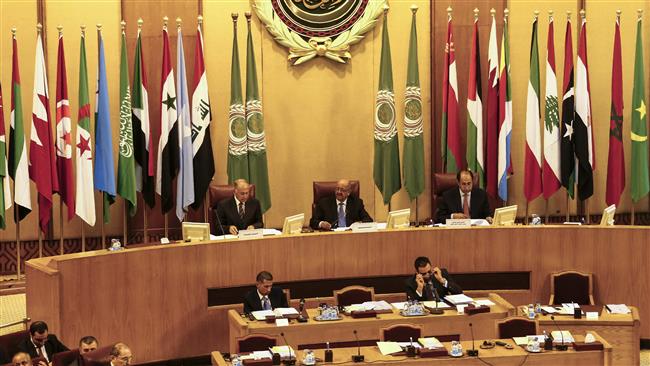
RNA - The strains, backed by the Western governments and media and Saudi Arabia that helped rise of an anti-Syrian alliance and boost of anti-Damascus opposition and terrorist forces, yielded suspension of Syria from the Arab League.
Syria’s relations with the Arab world were downgraded to their lowest levels to realize the goal of Damascus isolation. All of these measures came to serve an objective which was preparing the ground to collapse of the government of President Bashar al-Assad who stood in the front line of anti-Israeli camp in the Arab world.
But now things have changed drastically. Recent Syrian army’s advances that include recapture of territories from grasp of an array of foreign-backed, imported terrorist groups essentially tipped the scales of battle in favor of the Syrian government. These pro-Syrian developments serve as catalyst to the calls by some Arab governments and nations for return of Syria to the Arab organizations to break the Damascus isolation.
Very latest stance came by the Algerian Foreign Minister Abdelkader Messahel who during a press conference on the sidelines of the United Nations General Assembly three days ago pointed to his country’s “historic” relations with Syria and called for immediate return of the Syrian government to the Arab League. Furthermore, several Arab world political delegations visited Syria and met with Syria's President Assad. The latest delegation travelled to Syria on September 20 from Mauritania, voicing full support of their government to the Syrian “nation and government.” Hamas, another party that under Qatari pressures went separate way from the Syrian government as its main patron in the initial stages of conflict, has recently been seeking ways to rebuild relations with Syria.
Generally, for two reasons the calls for Syria return to its former place in the Arab world are heard from various parties:
1. Crisis containment and conditions improvement by Assad
The recent Syrian conditions that help the country move to stability and peace are an outcome of resistance to the unrelenting foreign pressures as well as the military advances made on the battlefields with air support from the Russia and ground backing from the allied Axis of Resistance forces. ISIS and other terrorist groups' progresses in Syria have been force-stopped, and now it is the Syrian army’s turn for progression and liberation of the terrorist-held vast swaths one after another.
The Syrian forces and their backers in recent wave of pushes have continued recapturing fresh areas in the three-year-encircled Deir ez-Zor in east as well as Homs outskirts. The armed forces, furthermore, took back Hama province's northern outskirts that fell to al-Nusra Front, an affiliate of al-Qaeda in Syria, in late 2014 following a sweeping anti-government offensive.
These triumphs apparently signal the Syrian government’s power to bring the situation under control. The success by itself reveals the reality about role of a strong Syrian government in containing the regional crises. Now the Arab governments begin to come up with the notion that to what extent cooperation with the Syrian government is needed and can help them build deterrence against the jeopardies to their national security mainly posed by the Syrian war. The international community now understands that sooner or later Damascus will put an end to the several-year conflict, and reasons for its isolation fade away. The country then will powerfully return to the regional and Arab world equations.
2. Arab countries take independent decisions amid Saudi power shrink
Since the outbreak of Syria crisis, Saudi Arabia, along with the Western sides, has been the key party working to overthrow the Syrian leader. Taking advantage of its “carrot and stick policy” as the traditional and frequently-used foreign policy instrument, Saudi Arabia managed to take some countries to its side in a campaign of relatively-successful Syria isolation.
But Riyadh recently sustained serious in Syria, Yemen, and Iraq. Another prestige-damaging setback was represented by Saudi Arabia's failure to impose its will and demands on Qatar even after the all-out blockade on Doha. Saudi regime’s Back-to-back political and military failures helped other Arab countries get a picture of how empty the Riyadh threats could be, something importantly emboldened them to independently express views.
Qatar resistance to pressures heavily hit the credibility of the Saudis who regard themselves big brother of other Arab countries. Under the new conditions, Riyadh lost the strength to press some countries. To Riyadh’s frustration, use of “threaten-or-appease” policy in relation to Syria can no longer bridge the gaps between the kingdom and other Arab states.
Source: Alwaght
847/940